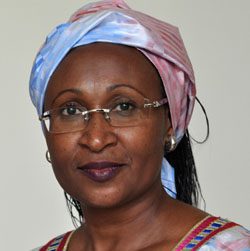

The Geneva Internet Platform (GIP) and DiploFoundation, in cooperation with the Permanent Mission of Switzerland to the UN, are offering a course for diplomats posted at permanent missions to the UN. The course aims to help participants understand and follow the digital policy aspects of many UN discussions and negotiations. This dynamic, blended learning course combines online learning with weekly face-to-face meetings and will run from 28 March to 15 May 2019.
The course is designed to benefit diplomats who follow Internet governance (IG) and other Internet-related policy fields (e.g. telecommunications, human rights, cybersecurity, trade). While improving their knowledge of digital policy, participants will also gain the practical skills and knowledge required to follow current IG processes such as the global IG architecture, privacy and data protection, and cybersecurity. The course focuses in particular on diplomatic and policy processes in the UN in New York, while also looking at the relevance of these issues in Geneva.
The course is organised by Diplo with the support of the Government of Switzerland. You may also read the course leaflet.
Course participants will engage in a combination of dynamic online classroom exchanges and in-person lunchtime learning sessions. In-person sessions will take place at the Permanent Mission of Switzerland to the UN in New York. Due to the blended learning course format which includes weekly face-to-face meetings, registration for this course is open only to applicants based in New York.
What will you learn?
- Global internet infrastructure: understanding how the internet functions
- Cybersecurity: making the Internet secure, safe, and stable
- Legal issues: digital applications and cases across jurisdictions
- Economic issues: understanding the global issues and their applications to digital commerce, investment, and innovation
- Development: the importance of digital policies that support implementation of the sustainable development goals (SDGs) and reduction of digital divides, including the sociocultural issues of multilingualism and cultural diversity
- Human rights issues: implications for offline and online human rights, including protection of privacy, freedom of expression and other important issues
For each digital policy issue, participants will learn about the main actors and policy processes. In particular, participants will address policy aspects of the Internet of Things, artificial intelligence, robotics, and big data. Special attention will be given to the SDG agenda.
How will you learn?
Course participants will engage in a combination of dynamic online classroom exchanges and in-person lunchtime learning sessions. You will receive guidance and personalised feedback on your classwork from the course team.
How long will you learn?
The course lasts for 8 weeks:
- 1 week of course introduction and orientation to online learning
- 7 weeks of addressing the course topics one by one (see below for more details)
Course lecturers
Anne-Rachel Inné
Head Consultant D4D
Melissa Hathaway
President, Hathaway Global Strategies and Lecturer, Introduction to Digital Policy and Diplomacy, New York
Pavlina Ittelson
Executive Director, Diplo US
Tereza Horejsova
Board Member, Diplo US
Virginia (Ginger) Paque
Senior Policy Editor, Diplo
Vladimir Radunović
Director of Cybersecurity & E-diplomacy, Diplo
Who should apply
This course will benefit diplomats at permanent missions to the UN in New York directly working in or engaging with Internet related policy fields (e.g. telecommunications, human rights, cybersecurity, trade, development).
To ensure effective interaction, the class size is limited to 25 participants. Please note that due to the expected high number of applications, participant selection will be based on criteria such as the regional balance of countries represented, preference to small and developing countries, and responsibility for digital policy issues at the mission.
Overview
The course consist of 7 modules:
- Introduction to digital policy and diplomacy
- Infrastructure and standardisation
- Legal issues
- Economic issues
- Human rights
- Cybersecurity
- Development and sociocultural issues
Also of interest
Need more info:
DiploFoundation (attn Tanja Nikolic)
Anutruf, Ground Floor, Hriereb Street
Msida, MSD 1675, Malta
Methodology
The course runs from 28 March to 15 May 2019, using a blended learning technique combining dynamic exchange in an online classroom with weekly lunchtime learning sessions at the offices of the Permanent Mission of Switzerland to the UN in New York.
Each week, participants will interact in an online classroom where they will find all reading materials and tools for online discussion. During the learning week (which starts on Thursday and extends over the weekend to Wednesday of the following week) participants read the lecture texts, adding comments, references, and questions in the form of hypertext entries. The course faculty and other participants read and respond to these entries, creating interaction based on the lecture text. During the week, participants also complete short quizzes to test their understanding of the course materials.
The learing week ends with the lunchtime learning session, scheduled from 1.00 to 2.15 pm each Wednesday at the Permanent Mission of Switzerland to the UN. During the informal lunch, the course faculty will clarify any pending issues from the week’s online interaction, and discuss ongoing policy processes with participants. The first face-to-face meeting is scheduled for Wednesday, 3rd April 2019.
This course requires a minimum of five hours of study time per week.
Participants who complete the course successfully will receive a course certificate.
Prerequisites
Applicants must be diplomats at permanent missions to the UN in New York. They should be following Internet governance or digital policy issues at their mission.
Fees and scholarships
Full scholarships are available to all selected candidates thanks to the generous support of the government of Switzerland.
Please note that due to the expected high number of applications, participant selection will be based on criteria such as regional balance of countries represented, preference to small and developing countries, and responsibility for digital policy issues at the mission.
How to apply
Please apply online using our online application form by 10 March 2019. Please apply for this course only if you are based in New York. Applications from other locations cannot be considered for this session.
Late applications will be considered only if places remain in the course.
Decisions on acceptance will be communicated by 15 March.
For questions, please contact Ms Tereza Horejsova: terezah@diplomacy.edu, tel. +1 202 413 9233.










